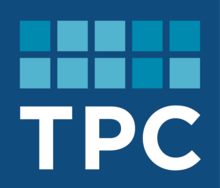Urban-Brookings tax policy center
 |
|
| Abbreviation | TPC |
|---|---|
| Formation | January 9, 2002 |
| Type | Public Policy Think Tank |
| Headquarters | Washington, D.C., U.S. |
|
Robert C. Pozen director
|
Leonard Burman |
| Website | www |
The Tax Policy Center (TPC), officially the Urban-Brookings Tax Policy Center, is a nonpartisanthink tank based in Washington D.C. A joint venture of the Urban Institute and the Brookings Institution, it aims to provide independent analyses of current and longer-term tax issues, and to communicate its analyses to the public and to policymakers. TPC combines national specialists in tax, expenditure, budget policy, and microsimulation modeling to concentrate on five overarching areas of tax policy: fair, simple and efficient taxation, social policy in the tax code, business tax reform, long-term implications of tax and budget choices, and state tax issues.
In 2002, tax specialists who had served in the Ronald Reagan, George H.W. Bush, and Bill Clinton administrations established the Tax Policy Center to provide analysis of tax issues. The following year TPC developed a tax simulation model to analyze the federal income tax and proposals to change it. That model has evolved to incorporate new and additional data, changes in federal tax law, and other aspects of the tax system and the economy.
Mark Mazur will replace Leonard Burman as the Robert C. Pozen Director of the Tax Policy Center starting February 1, 2017. Co-Directors are Bill Gale, Arjay and Frances Miller Chair in Federal Economic Policy at the Brookings Institution, and Eric Toder, Institute Fellow at the Urban Institute. Donald Marron, former member of the President's Council of Economic Advisers and former acting director of the Congressional Budget Office, was Director of TPC from 2010 to 2013. The Center's TaxVox blog is led by tax correspondent Howard Gleckman.
TPC publications examine the impacts of a variety of tax issues. A 2012 report outlined the then-presidential candidates' tax proposals and analyzed their distributional and revenue impacts. Other studies have examined the 2001-2006 tax cuts, the alternative minimum tax, the impact of tax provisions on low-income families, and tax incentives for education. An extensive collection of tables provides estimates of the impact of current taxes as well as the implications of proposals to change tax law.
...
Wikipedia
